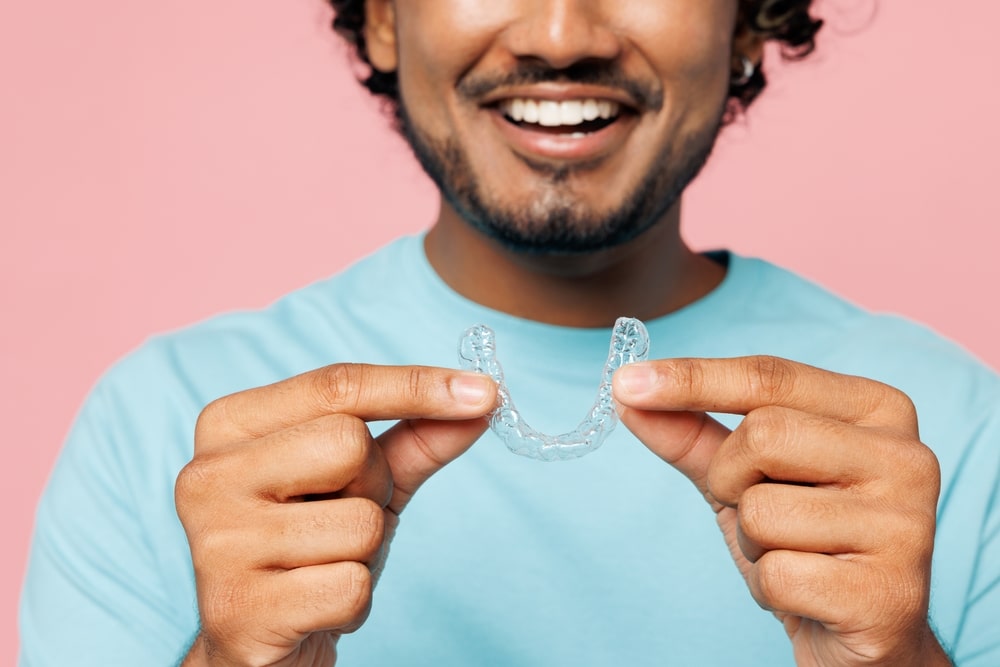Good dental habits don’t start in adulthood — they begin in childhood. What your child learns about oral health before age 10 can shape their smile for a lifetime. Cavities, gum disease, and bad oral hygiene habits are mostly preventable with the right foundation.
If you’re a parent, guardian, or caregiver, this guide will walk you through the top 10 dental habits every child should learn before they turn 10.
Let’s get into it.
1. Brushing Twice a Day — The Right Way
Teaching kids to brush twice a day is basic, but teaching them to do it correctly is essential.
Key points to teach:
- Use a soft-bristle brush
- Brush for at least two minutes
- Focus on all surfaces — front, back, and chewing areas
- Use gentle circular motions
Supervise brushing until they master the technique, usually around age 6 to 8.
2. Flossing Daily — Yes, Even for Kids
Flossing isn’t just for adults. As soon as your child has two teeth that touch, flossing becomes necessary.
Why it matters:
- Removes food particles stuck between teeth
- Prevents plaque buildup in areas a toothbrush can’t reach
- Teaches discipline and routine
Start with floss picks to make it easier for small hands. As they get older, introduce regular string floss.
3. Visiting the Dentist Every 6 Months
Make dental checkups a routine, not a reaction to pain.
Regular checkups help with:
- Early detection of cavities or orthodontic issues
- Professional cleanings that remove buildup
- Building a comfort level with the dentist
Kids who grow up with regular dental visits are less likely to develop dental anxiety later in life.
4. Drinking More Water (Especially After Meals)
Water is your child’s best friend for oral health.
It helps by:
- Washing away food debris and sugars
- Neutralizing acids in the mouth
- Supporting saliva production, which naturally protects enamel
Encourage water over juice or soda. It’s one of the simplest and most powerful habits to build.
5. Eating Less Sugar (and Knowing Why)
You don’t have to eliminate treats, but kids should understand that sugar feeds bacteria in the mouth, leading to cavities.
Teach them to:
- Save sweets for after meals, not between meals
- Avoid sticky candies that cling to teeth
- Rinse or brush after having a treat
The earlier they grasp the sugar-to-cavity connection, the more mindful they’ll be.
6. Using the Right Amount of Toothpaste
More isn’t better. Using too much toothpaste — especially fluoride toothpaste — can be harmful for kids under 6.
Here’s a simple guide:
- Under age 3: a smear (rice-grain size)
- Age 3 and up: a pea-sized amount
Teach them to spit it out and not swallow, especially once they transition to adult toothpaste.
7. Never Using Teeth as Tools
Kids love to tear, twist, or open things with their teeth. That’s a habit worth stopping early.
Using teeth as tools can:
- Cracked or chipped teeth
- Wear down enamel
- Create bad long-term behaviour
Teach them to reach for scissors or a bottle opener, not their bite.
8. Wearing a Mouthguard During Sports
If your child plays contact sports, a mouthguard is essential.
Benefits of a mouthguard:
- Prevents chipped or knocked-out teeth
- Reduces the risk of jaw injuries
- Helps avoid soft-tissue cuts
Custom mouthguards offer the best protection and comfort. Don’t wait for an injury to start the habit.
9. Replacing Toothbrushes Every 3 Months
Toothbrushes don’t last forever. Worn bristles are less effective and can harbour bacteria.
Teach your child to notice when their toothbrush looks:
- Frayed or bent
- Discoloured or dirty
- Smelly or worn
Mark your calendar or set a reminder to replace brushes every season — or sooner if they’ve been sick.
10. Making Oral Hygiene a Daily Routine — Not a Chore
The most important habit? Consistency.
Brushing and flossing shouldn’t feel like punishment. Turn oral care into something positive by:
- Creating a morning and bedtime hygiene routine
- Using songs, timers, or charts for engagement
- Offering praise instead of punishment
When kids associate oral hygiene with confidence and responsibility, it becomes second nature.
Bonus Habits That Reinforce a Healthy Smile
Beyond the top 10, there are a few extra habits worth introducing early:
Chew Sugar-Free Gum (if age-appropriate)
It can increase saliva and help clean teeth after meals when brushing isn’t an option.
Be Aware of Thumb Sucking or Pacifier Overuse
These habits, if continued past age 4–5, can impact tooth alignment and jaw development.
Learn the Value of a Healthy Smile
Encourage your child to see their smile as a source of confidence, not just something to fix when it hurts.
Why Early Dental Education Matters
Children who form healthy dental habits by age 10 are more likely to carry those habits into adulthood. This reduces the risk of:
- Cavities and gum disease
- Orthodontic problems
- Expensive dental procedures later on
Just like brushing hair or tying shoes, good oral care should feel automatic by the time they hit double digits.
Talk to a Pediatric Dental Professional
Every child is different. Some need extra support, while others are naturally curious and cooperative.
If you’re unsure about the best tools, techniques, or products to use, don’t guess — ask a professional. Your child’s dentist can help tailor a routine that fits your family’s lifestyle and your child’s needs.
Ready to give your child the best start?
Call Wedgewood Dental at (573) 729-7701 to schedule a pediatric appointment with a trusted Rolla Dentist who understands the importance of early oral health education.



